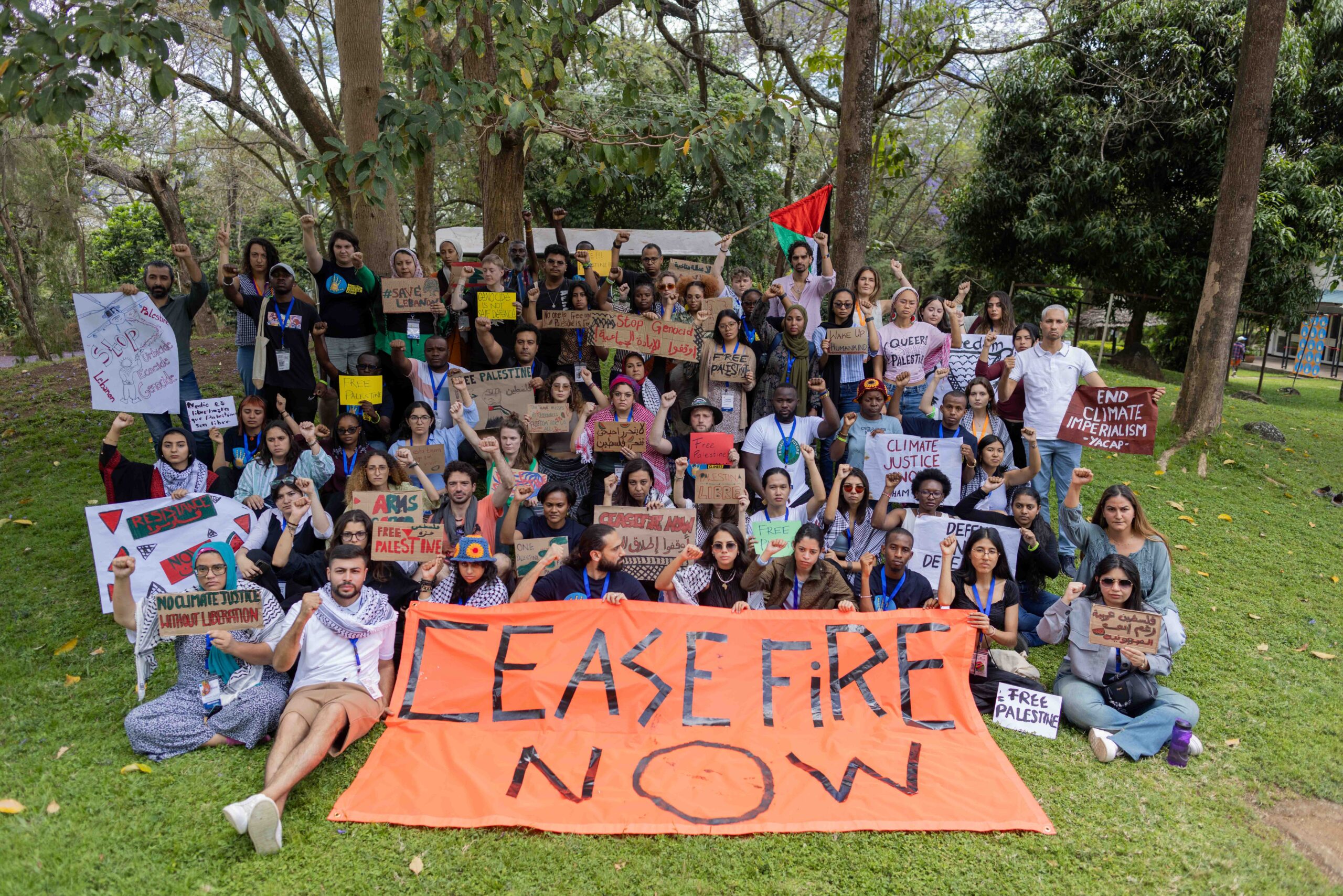Justice and Solidarity: Living Principles not Theoretical Frameworks
Climate Justice Camp 2024, Arusha, Tanzania
MENAFem took part in leading the Gender and Climate track in the third global edition of the Climate Justice Camp in Tanzania which gathered 300 young climate leaders from the most climate-impacted countries. As the largest in-person platform for youth from the Global South, previous camps have brought together nearly 1,000 participants from frontline nations, sparking new climate initiatives and strengthening youth representation at UN COP negotiations. The week-long agenda included workshops on key issues such as the road to COP, energy transition, adaptation and resilience, plastics pollution, conflict and demilitarization, and gender and climate, with the aim of creating regional and international networks to advocate for long-term political change.
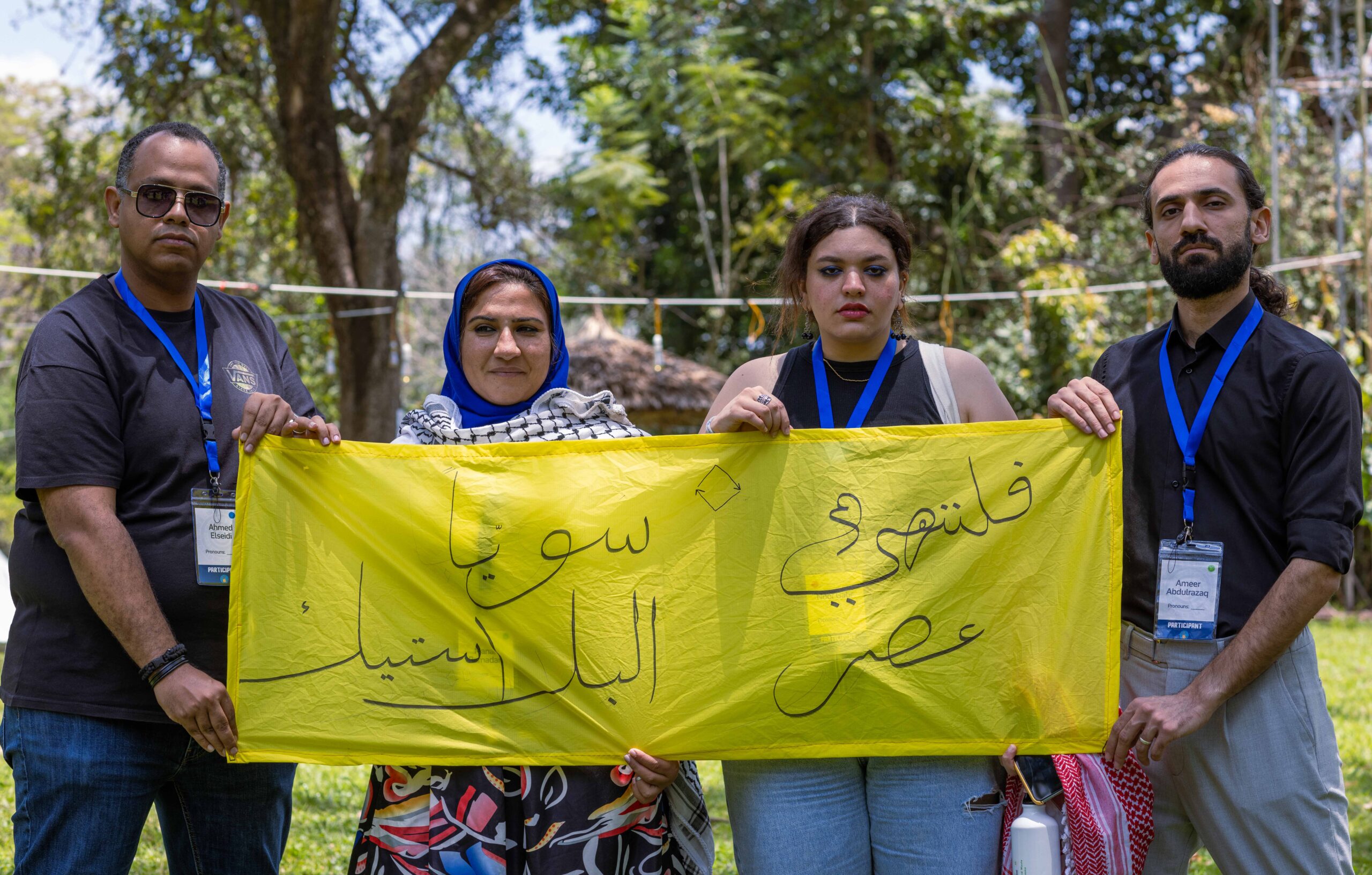
Perhaps one of the most essential aspects of the Climate Justice Camp is peer learning, which is a vital component of climate action and organizing movements, as it results in better collaboration, knowledge-sharing, and collective empowerment. By learning from one another’s experiences, strategies, and challenges, activists in the climate justice camp were able to develop more effective, context-specific approaches to tackling climate issues. Peer learning also creates a space for solidarity, where individuals and groups from diverse backgrounds can exchange ideas, refine tactics, and strengthen their networks, which we saw repeatedly in the camp.
Multiculturalism and solidarity are essential to achieving climate justice and protecting the environment, as they emphasize the need for inclusive, diverse perspectives and collective action. Climate change disproportionately affects marginalized communities, often those who have contributed the least to environmental degradation. By fostering a global sense of solidarity, we can amplify the voices of Indigenous peoples, low-income communities, and people of color, ensuring that their knowledge, resilience, and experiences shape climate solutions. Multicultural collaboration strengthens our ability to address environmental challenges holistically, recognizing that climate action must be equitable, intersectional, and rooted in justice for all.
Shahinaz Adel shared her reflections: Attending the climate justice camp was an incredible and transformative experience for me. It was not only refreshing to step into an environment filled with passion and hope but also deeply inspiring to hear diverse perspectives from people with unique journeys and stories. Engaging in meaningful discussions, learning from others’ experiences, and sharing collective ideas left me with a renewed sense of purpose and determination.
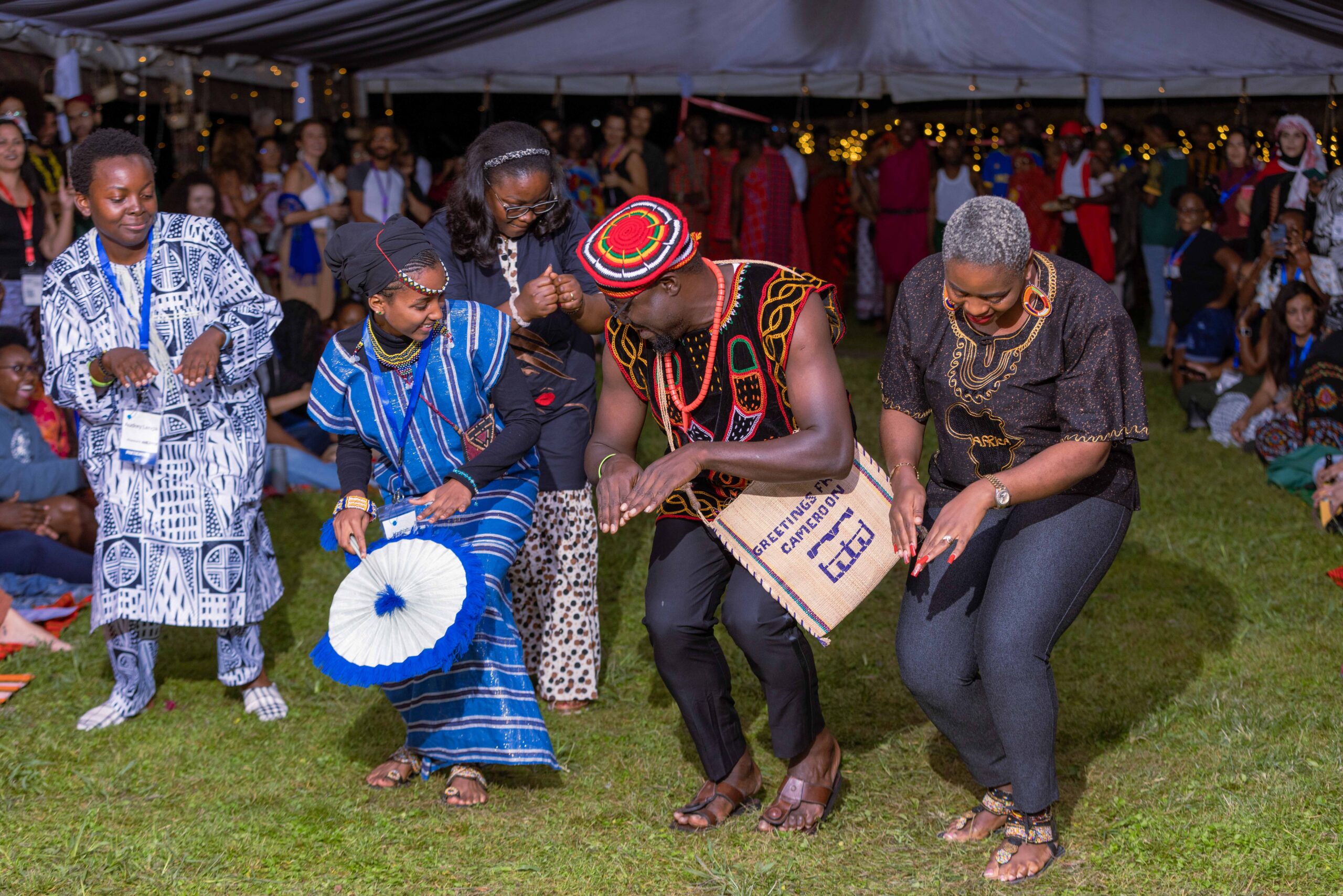
MENAFem contributed to the gender and climate track through the introductory session where Amena Sharaf introduced the topic, the interplay between these two topics that shouldn’t be separated, the history of the patriarchal rise of industrialization and the breaking down of communities. Participants had the chance to reflect on their local contexts and what these challenges represent for them and their communities. Additionally, MENAFem delivered workshops around movement building and integrating feminist principles in climate action.
While speaking about global financial institutions and the impact of their global policies on local conditions in many developing countries, one of the participants shared that she found a way out of unjust financing policies through community financing methods. Another participant talked about the necessity of our insistence on our right to access financing from the Global North according to policies that suit our needs, emphasizing that there is no way to achieve this right if we act individually.
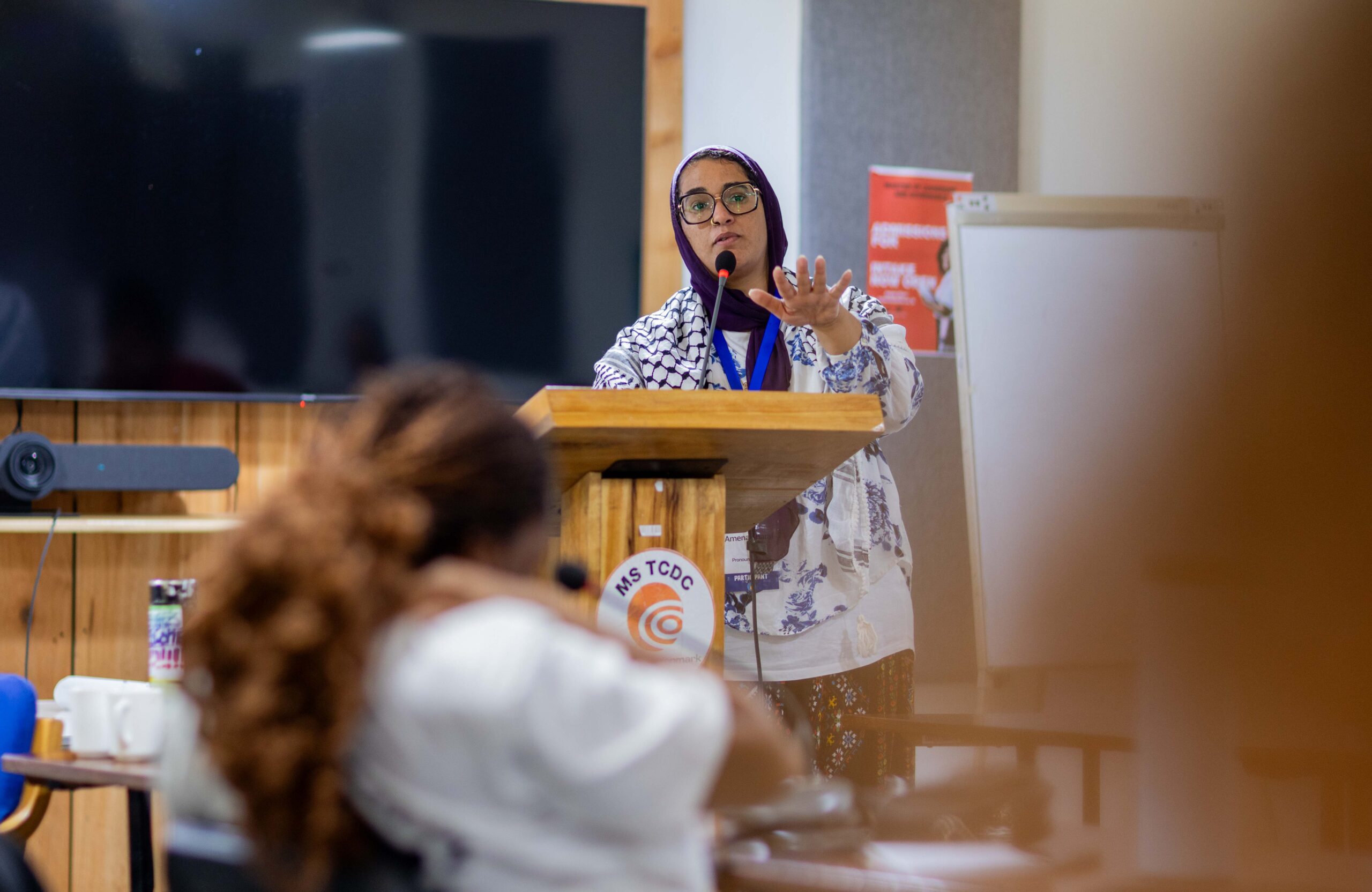
We saw some idols being shattered last year. We saw some individuals who represent the values and principles of humanity betraying their humanity and turning away from the pain caused by brutal colonialism. Perhaps that was the greatest bounty from the climate justice camp: the restoration of hope. We saw signs of solidarity in what some wear and what others say. The principles of climate justice are inseparable from the principles of human rights and anti-colonialism, for ultimately feminism is intertwined with resource exploitation and the deprivation of freedoms. While we spoke about the connection between gender and climate degradation, others talked about the link between colonialism and environmental degradation. In the face of this interconnectedness, we find ourselves calling each other to community solidarity.
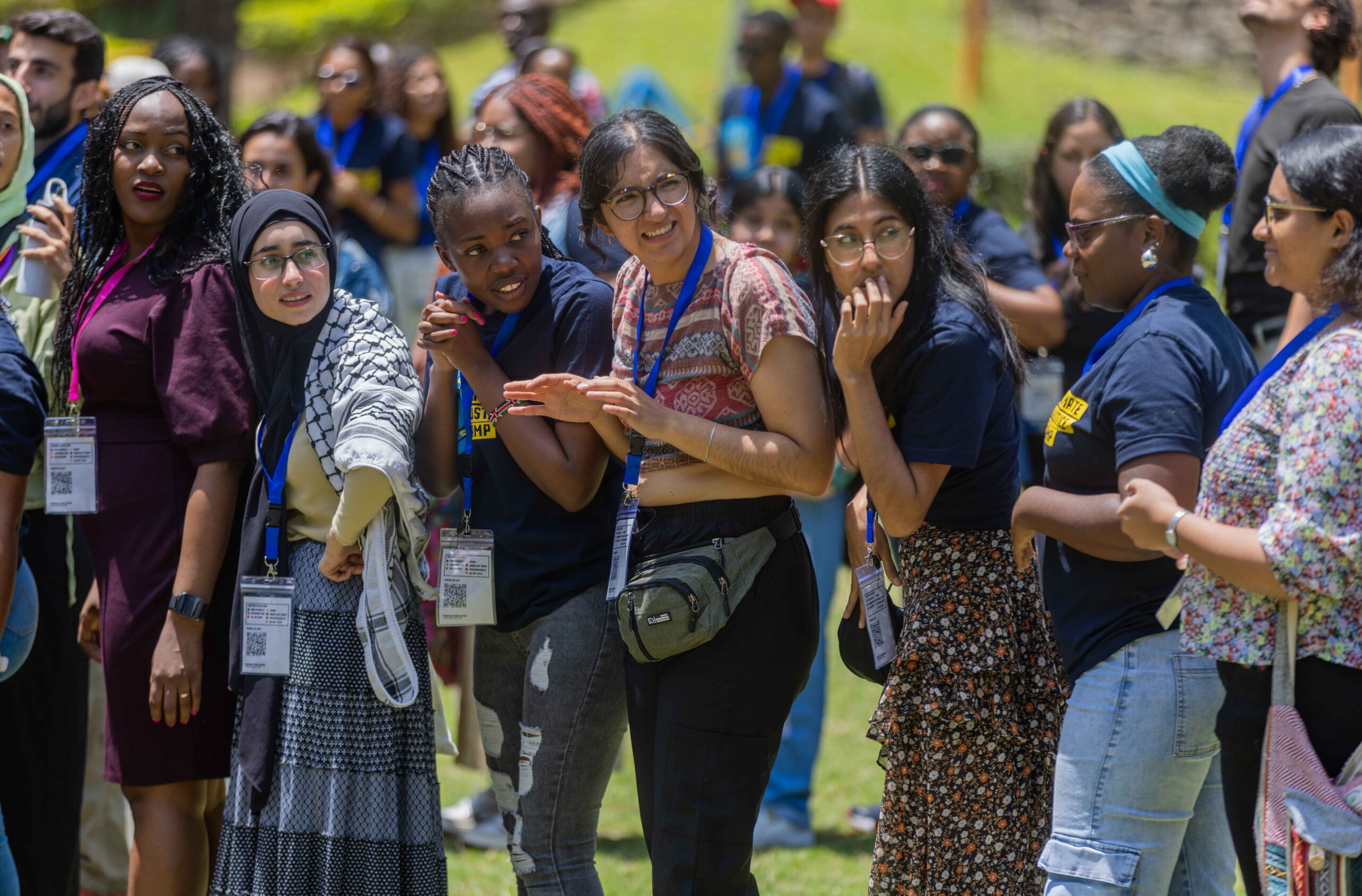
Kenzie Azmi echoed sentiments of anti-colonialism at the camp: “Among the singing monkeys and baobab trees of Tanzania, the third edition of the Climate Justice Camp took place. At the camp, you are more than just a participant, you can bring your voice to learning and storytelling spaces, represent your affected community, and challenge mainstream ideas. After spending a year thinking people in the climate movement were not ready to make the needed links between climate change and colonialism, at the Climate Justice Camp, I was able to regain a small glimmer of hope that young people around the Global South will force the movement and decision makers in the right direction”.
Sometimes building movements seems to be a great challenge because no one moves alone. Yet, there is always a glimmer of hope when everyone stands side by side. We stood side by side in the Climate Justice Camp, and we found some comfort in the shoulder-to-shoulder contact for a single goal.


